

We recommend a Desktop or Laptop Computer for the best performance.
![]() We recommend Google Chrome for the best performance.
We recommend Google Chrome for the best performance.
Relative clause
Review the conversation "What's Your Proudest Moment?". Do multiple choice questions to review defining and non-defining relative clauses and the new vocabulary that you just learned.
The suggestion might not be the right answer or the best answer. You still have to think hard before using it!
Did you hear the sound?
Good!
The silent mode is currently set to ON. Turn off the silent mode to hear the audio in the lesson.
Try to turn on your speakers or turn up the volume.
Or change your browser setting.
If you still cannot hear the sound, don't worry. You can still do the lesson using the silent mode. (You can change the setting in the lesson.)
You need to allow audio playback.
You need to change your browser setting.
Or, you can do the lesson using the silent mode (without the sound).
Audio is not supported in your browser.
To play sound, please use the latest version of Google Chrome or Microsoft Edge.
You can do the lesson using the silent mode (without the sound).

Click to Test

You said: ""
If you see the results above, then your microphone is working.
If you don't see anything, try to speak loudly into your microphone or read our guide for help.
Your microphone is not working.
Make sure your microphone is plugged in and is working properly.
Or, change your browser setting.
Click on the (1) Green icon on the browser bar, then, click on the (2) Sound dropdown. Select (3) Allow.
Click on the (1) Settings icon, then, click on the (2) Settings menu item.
Click on (3) Cookies and site permissions.
Click on (4) Media autoplay.
Select (5) Allow for "Control if audio and video play automatically on sites".
On the browser address bar, control-click, and select (1) Settings for This Website...
Click on the menu for (2) Auto-Play.
Select (3) Allow All Auto-Play.
Click on the (1) Settings icon, then, click on the (2) Settings menu item.
Click on the (3) Privacy & Security tab, then, click on the (4) Settings... menu item for Autoplay.
Select (5) Allow Audio and Video option.
Click on the (1) Green icon on the browser bar, then, click on the (2) Sound dropdown and select "Allow".
Please make sure that your volume is turned up. Check that your device can play sound.
Please make sure that your volume is turned up. Check that your device can play sound.
Please turn up your volume. Also, please make sure your speaker is working.
When the browser asks you, click on (1) Allow button.
If you blocked the microphone already, click on the (1) green lock icon, then select (2) Allow under Microphone dropdown.
When the browser asks you, click on (1) Allow button.
If you blocked the microphone already, click on the (1) lock icon, then select (2) Allow under Microphone dropdown.
Sometimes, there is a (1) microphone icon at the right side. Click on it, then select (2) "Always allow https://alulaenglish.com to access your microphone".
On the browser address bar, control-click, and select (1) Settings for This Website...

Click on the (2) Microphone dropdown.
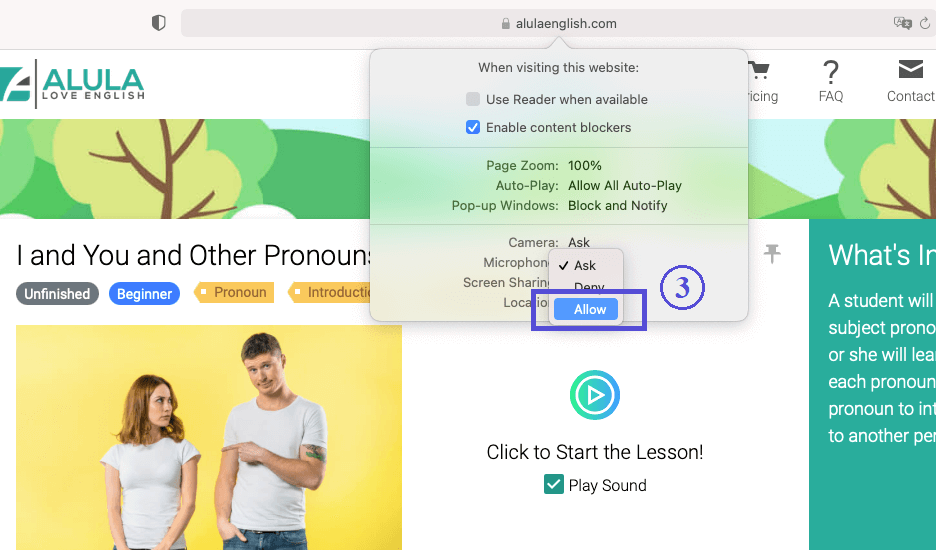
Select (3) Allow.
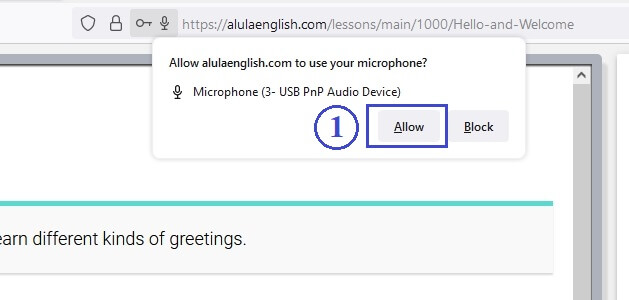
When the browser asks you, click on (1) Allow button.
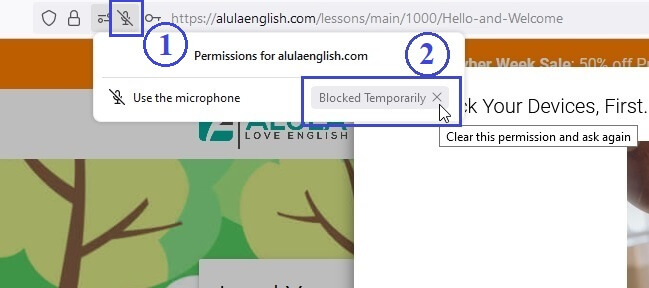
If you blocked the microphone already, click on the (1) microphone icon, then click the (2) X in the Blocked Temporarily button.
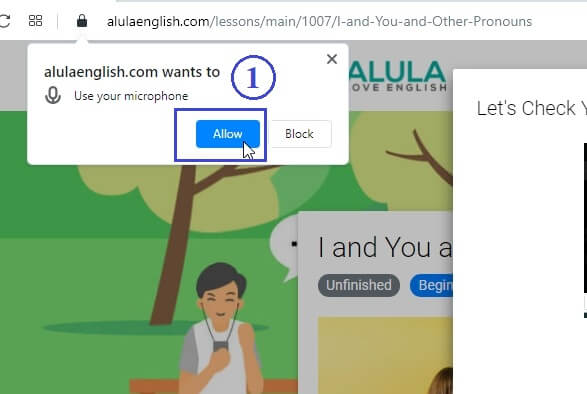
When the browser asks you, click on (1) Allow button.
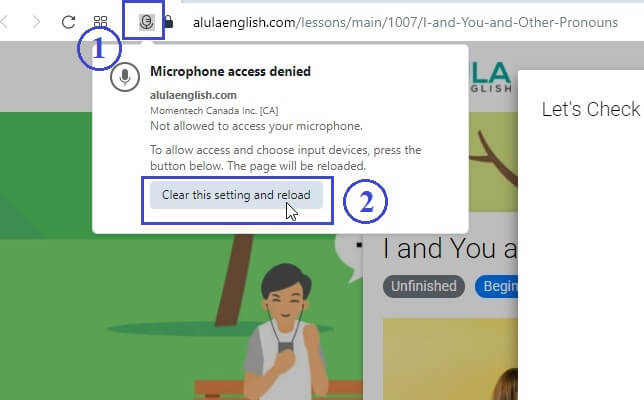
If you blocked the microphone already, click on the (1) microphone icon, then click the (2) Clear this setting and reload button.
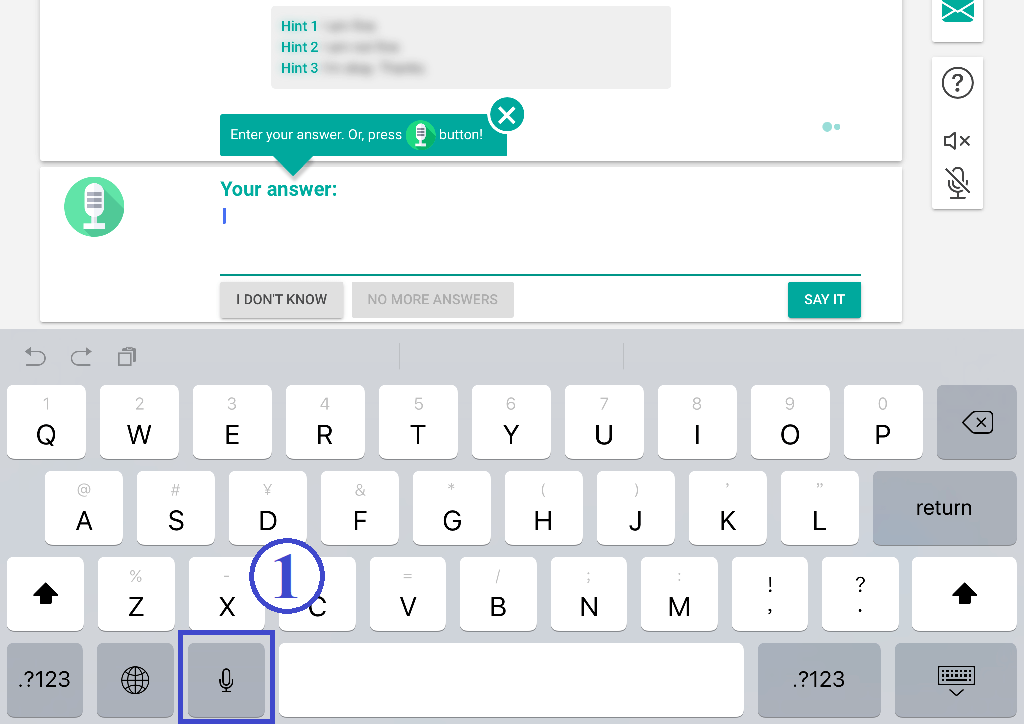
On your iPhone or iPad keyboard, click on the (1) microphone icon.
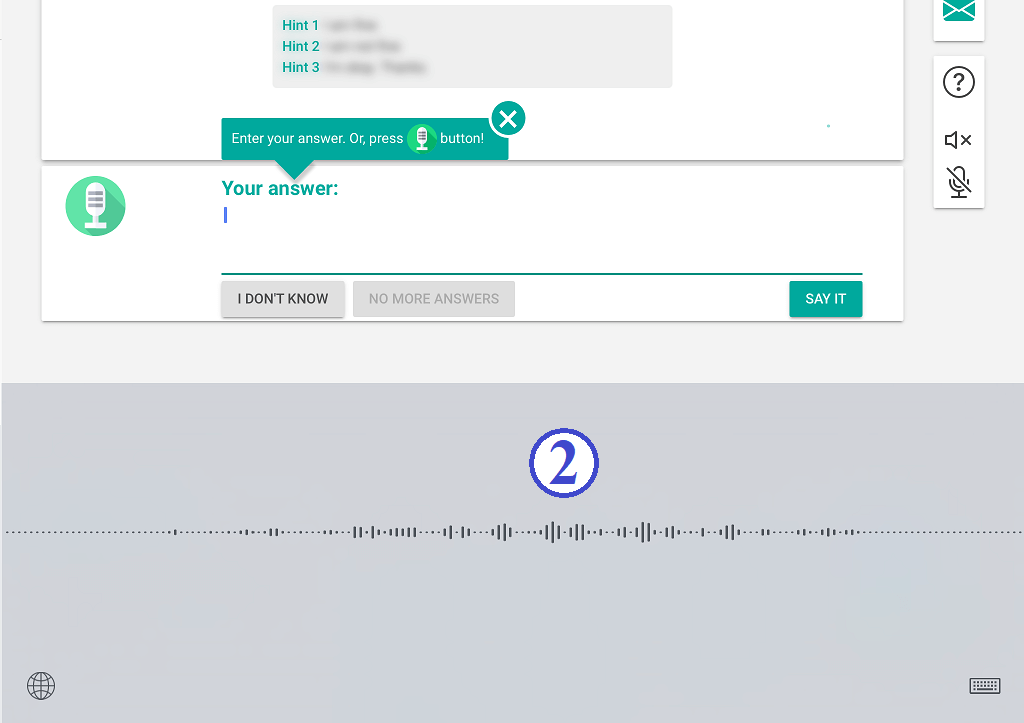
(2) Speak into your iPhone or iPad microphone directly.
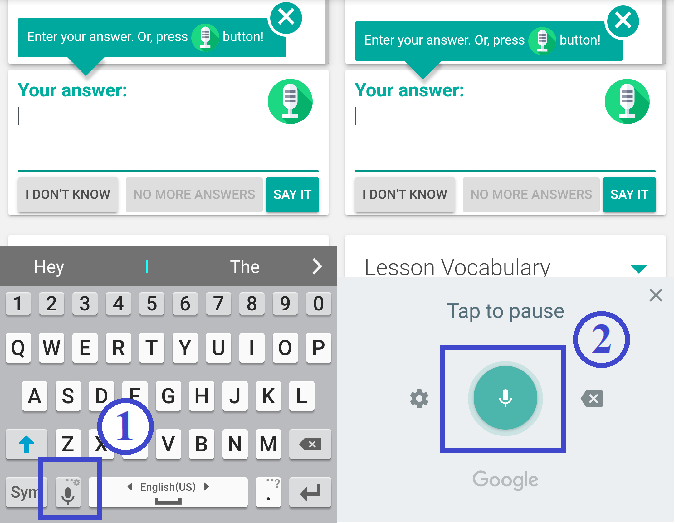
Click on the answer area and the Android keyboard will show up. Click the (1) Microphone button. Then, use (2) the Android voice recorder to record your voice.


已发送一封电子邮件到您的电子邮件地址。
单击电子邮件中的按钮以验证您的电子邮件地址并激活您的帐户。
已给您重新发送了电子邮件。 如果您没有看到它,请检查您的垃圾邮件文件夹。
由于错误,未发送电子邮件。 请再试一次。
我们可以找到您的电子邮件记录。 请尝试刷新屏幕,然后登录您的帐户。
已激活该电子邮件。 登录。
如果您没有看到该电子邮件,请单击下面的链接,以便我们重新将其发送给您。